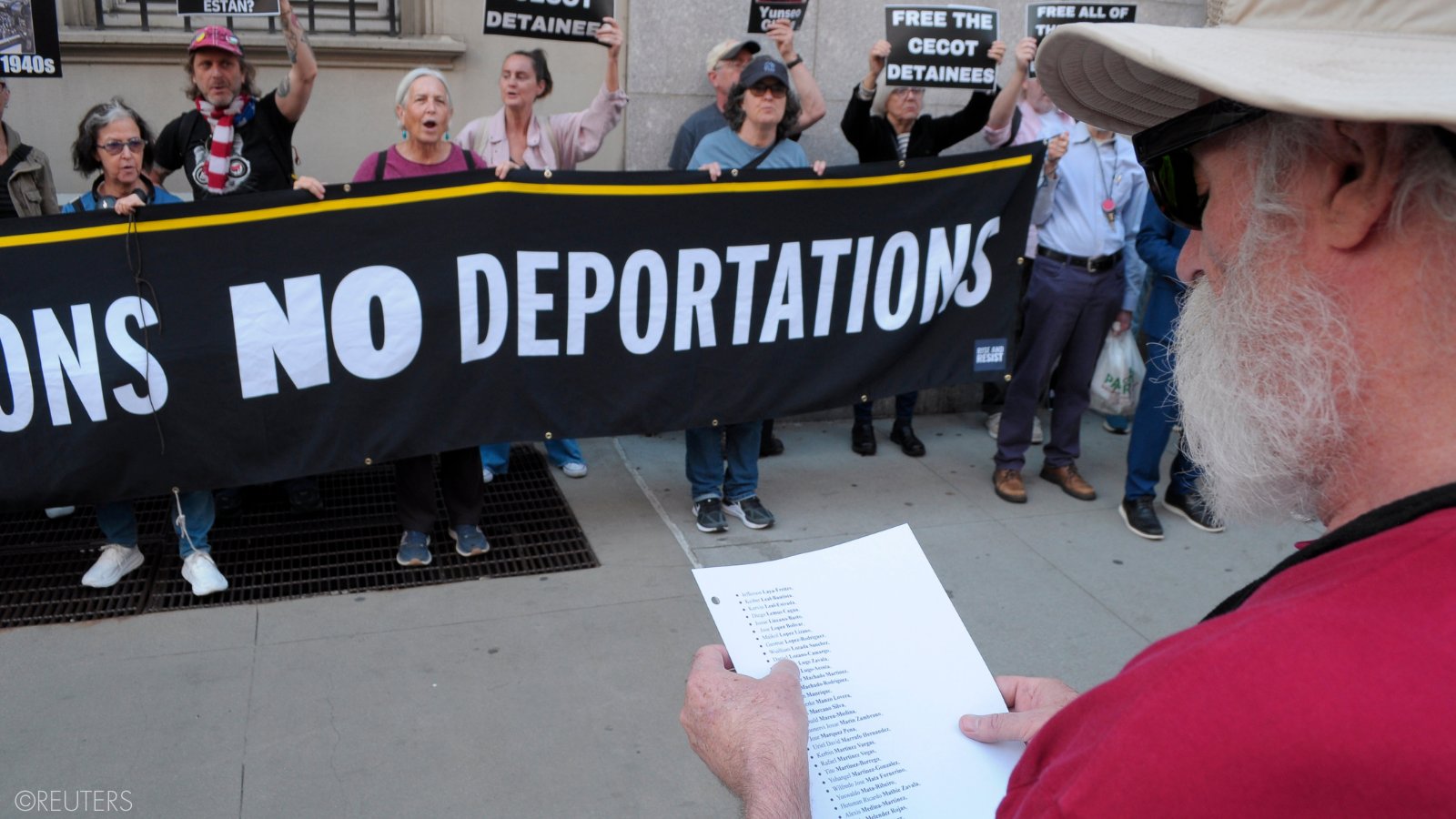UN Experts Condemn US Deportations to El Salvador, Cite Due Process and Human Rights Violations
The UN experts expressed alarm at the U.S. government’s labeling of gang members as “terrorists” to justify these actions.

United Nations human rights experts have sharply criticized the recent deportation of more than 250 men—primarily Venezuelan and Salvadoran nationals—from the United States to El Salvador, raising alarm over serious breaches of international law, including violations of due process and the principle of non-refoulement.
According to the experts, the deportations—justified under the antiquated Alien Enemies Act of 1798—appear to be based on an improper and overly broad interpretation of the law, designed for wartime use against nationals of enemy states. “There has plainly been no ‘invasion’ or ‘predatory incursion’ of the US by any foreign State, as required by the Act,” the experts emphasized, stating that even if some deportees were gang members, “gang activity is a crime, not an act of war.”
Violation of Due Process and Legal Safeguards
The experts expressed particular concern over the lack of due process afforded to those deported. “Many individuals were deported with no independent judicial review, no opportunity to contest the allegations against them, and in some cases, no access to legal representation,” they stated. Families of deportees were often kept in the dark about their loved ones’ fate, adding a layer of secrecy that suggests potential cases of enforced disappearance.
The use of the Alien Enemies Act, they said, allowed the U.S. government to circumvent ordinary immigration procedures and international legal norms. Deportees were often unaware of their legal rights, with no effective mechanisms to challenge the decisions.
Inhumane Conditions in Salvadoran Prisons
The experts voiced grave concern over the fate of deportees upon arrival in El Salvador. Many were immediately imprisoned under unclear legal pretexts, with no access to courts, lawyers, or even family contact. Reports from Salvadoran detention facilities describe inhumane conditions: overcrowded cages, lack of mattresses, scarce medical care, and incidents of torture and violence among detainees.
“Prison conditions in El Salvador appear to fall far below international human rights standards,” the experts said, calling on the Salvadoran government to grant unfettered access to independent prison monitors. Allegations of enforced disappearances within the prison system further compound fears for the safety and wellbeing of detainees.
Violation of the Principle of Non-Refoulement
The deportations also raise serious questions about the U.S.’s compliance with the international law principle of non-refoulement, which prohibits returning individuals to a country where they risk torture, arbitrary detention, or death. According to the experts, some Venezuelan deportees are now at risk of being forcibly sent back to Venezuela, where they could face political persecution and grave human rights abuses.
Criticism of ‘Terrorist’ Designations and Political Pressure
The UN experts expressed alarm at the U.S. government’s labeling of gang members as “terrorists” to justify these actions. “Organized crime should be addressed with proper criminal justice mechanisms, not with designations that undermine international protections,” they warned. Such rhetoric risks stigmatizing entire communities and may enable governments to bypass human rights obligations.
They also condemned political attacks against the U.S. judiciary and legal professionals representing deportees, stressing that lawyers must be able to perform their duties without fear of reprisal. “The role of civil society and legal advocates is crucial, and these individuals must be shielded from intimidation both in the U.S. and El Salvador,” they said.
Call to Action: Suspension of Deportations and Legal Redress
The experts called on both the U.S. and Salvadoran governments to immediately halt all deportations under the Alien Enemies Act and instead follow established immigration laws that incorporate due process, legal safeguards, and international human rights principles.
They urged U.S. authorities to facilitate the return of individuals who were unlawfully deported and wish to come back, especially those whose deportations were overturned by U.S. courts. “Deportations must stop until these international legal guarantees are respected,” the statement concluded.
The UN has sent formal communications to both governments, along with a list of over 100 Venezuelan nationals affected by the deportations. Many of these individuals remain missing, their whereabouts unknown. The issue follows earlier concerns raised by UN mandate holders regarding detention conditions in El Salvador throughout 2022, 2023, and 2024.










